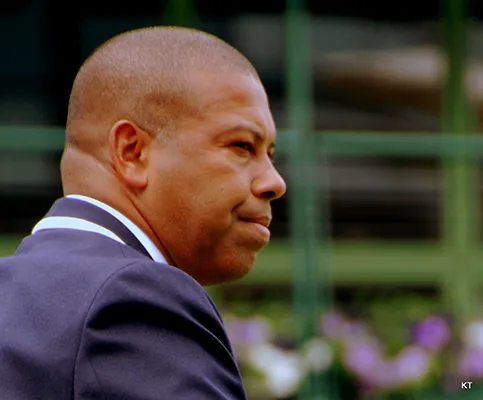Tennis Hindrance – What does it mean?
What does tennis hindrance mean in tennis?
Tennis hindrance is an act made during play that can cause a disturbance for the player(s), which can lead to a point loss.
This act can be made by some of the players, spectators, line umpires, or even a bird.
Types of hindrances
A tennis hindrance can be deliberate or unintentional.
So, if a player is hindered during play by a deliberate act of the opponent, that player shall win the point.
But if that player was hindered during play by an unintentional act of the opponent or something outside the player’s control, the whole point should be replayed.
What happens if there’s a Hindrance call?
We can’t talk about this topic rule without mentioning Serena Williams’s hindrance call in the Australien Open 2015 Final vs Maria Sharapova.
She said come on after she made her serve thinking it was an ace and the umpire heard it and called it a hindrance. Serena explained this in her post-final press conference.
Another example of a tennis hindrance call is made by Haase Robin. Let’s watch the video:
Clearly, Haase has extended his grunt which cost him the point. And this could happen in the most difficult times, especially in a tiebreak.
Grunting, Talking, Fallen tennis ball
As we said before, the rule says that if a player deliberately hinders the opponent, he loses the point. If the act was unintentional the point is replayed.
If a ball fell out of a player’s pocket even unintentionally, this would cost him the loss of the point
Now when the player drops his racket during the point is normally an advantage to his opponent, so we don’t consider it a hindrance.
The most common tennis hindrance is when a player’s cap or headband falls off. Assuming this action isn’t deliberate. The correct procedure is to replay the point and to advise the player that if it happens again it will be judged as a deliberate hindrance (point loss).
What if a player double-hits the ball unintentionally? Well, that’s not considered as a hindrance. If he did it deliberately, he would lose the point.
Moreover, a player will lose the point if he claims to stop playing because he thought that the opponent was being hindered.
Also, it is not a hindrance if a ball or any other object was lying on the player’s court when the point started.
What about talking during play? For a singles match, talking is not allowed.
And for doubles, talking is allowed between partners only when the ball is moving toward them. But if the ball is moving away from them, they should not talk.
External influences
The common decision is whether an incorrect call from a line umpire was a hindrance to the player, or whether the call made no difference to the playing of the point.
Here, the chair umpire must decide if it made no difference to the play. Then it is not a tennis hindrance.
The rule also applies when the ball kid starts to run on as if the point was finished. The chair umpire shall replay the point.
When it comes to hindrances in tennis, there can be some unusual rules that you don’t see very often. Like if any object is falling into the court like a piece of paper. This is a hindrance, and the point should be replayed.
Similarly, if a ball hits a bird flying over the court, the point shall be replayed. As happened in this point:
Normally, the noises from outside the court are not considered to be a hindrance. We can see that when a spectator shouts out during the service motion, the server is distracted.
At the end of the point, the chair umpire should ask for quiet during the service but it is not ruled as a hindrance.
Immovable accessories
Immovable equipment in tennis, such as the net, boundary lines, posts, walls, chair of the chair umpire, and the wind are integral to the game’s structure and function.
They are intentionally placed and designed to facilitate fair and consistent gameplay. So no hindrance rule applied here.
Immovable equipment are exempt from such considerations because they are essential components of the game’s infrastructure, contributing to its integrity and consistency.
How did Djokovic cause a hindrance?

In the first Wimbledon semi-final, precisely in the 4th game of the 2nd set, the umpire penalized Novak Djokovic for hindrance because of the noise he made.
Let’s say if you’re still grunting while the opponent is hitting, you can disturb him. If you get the particularly severe umpire, he’ll make you pay for this.
However, Djokovic didn’t do it on purpose, it was a grunt due to the effort because he was running. The umpire gave Jannik Sinner a point because the Serbian star extended his grunt.
Controversial hindrance call!
What’s your call on this one?
